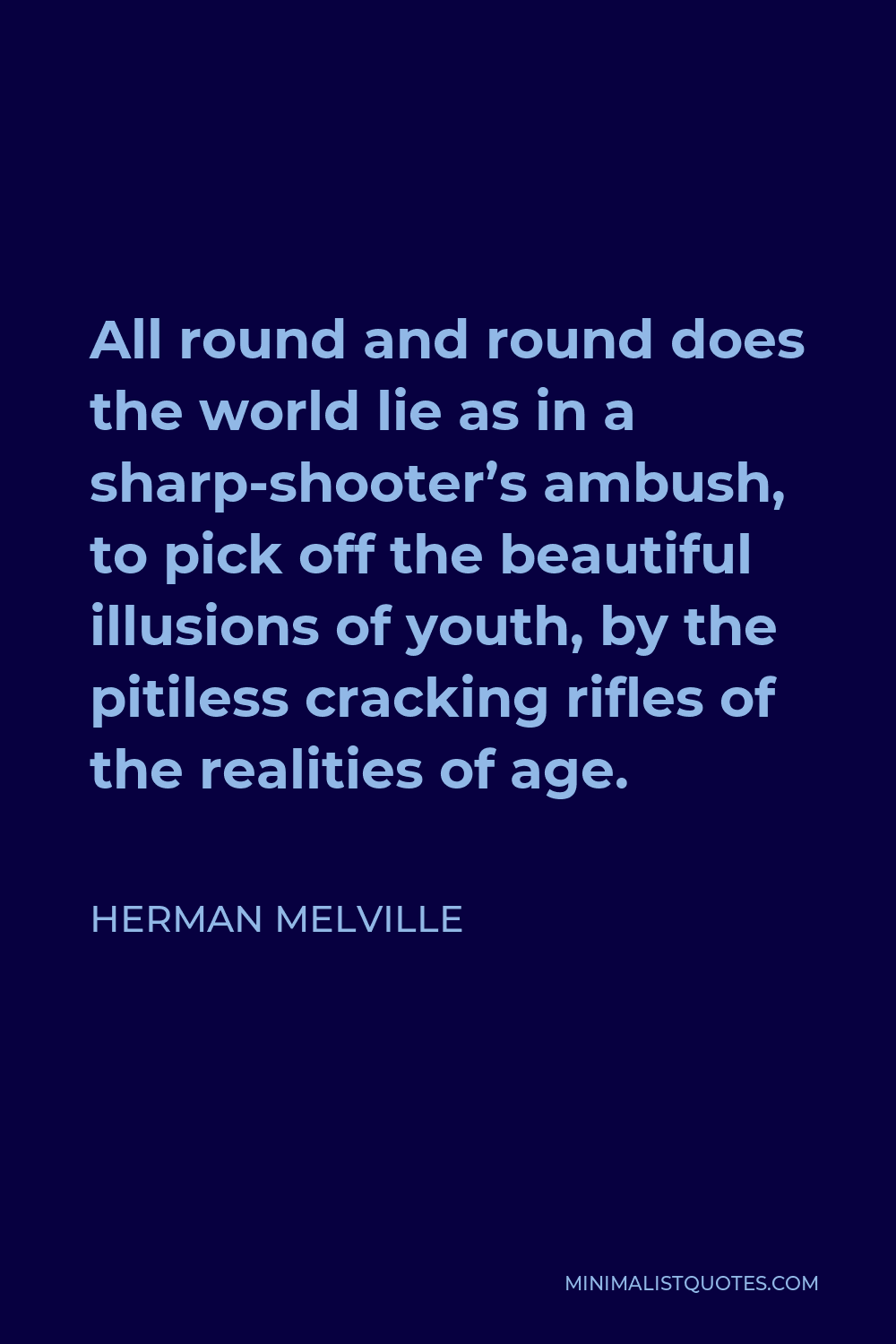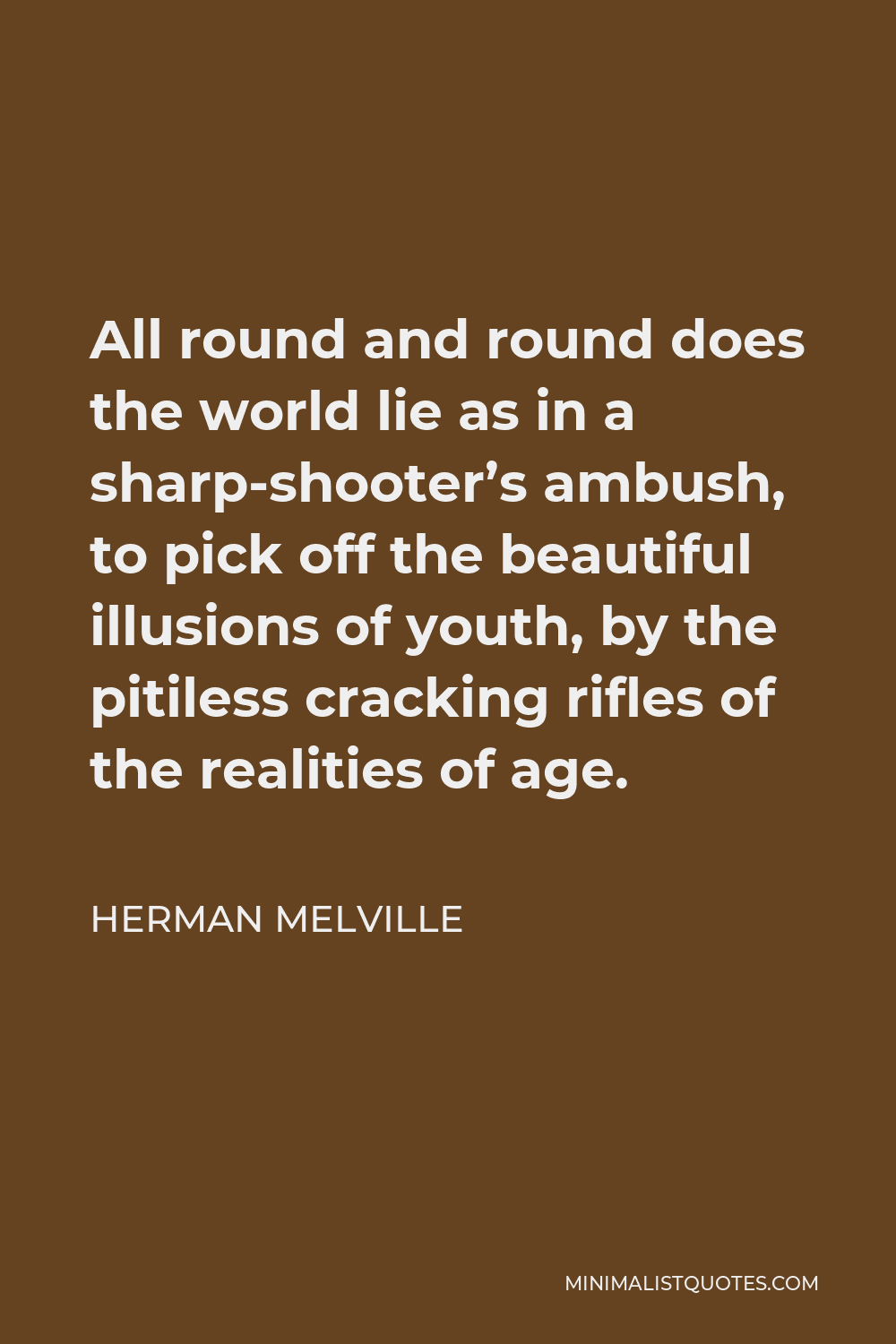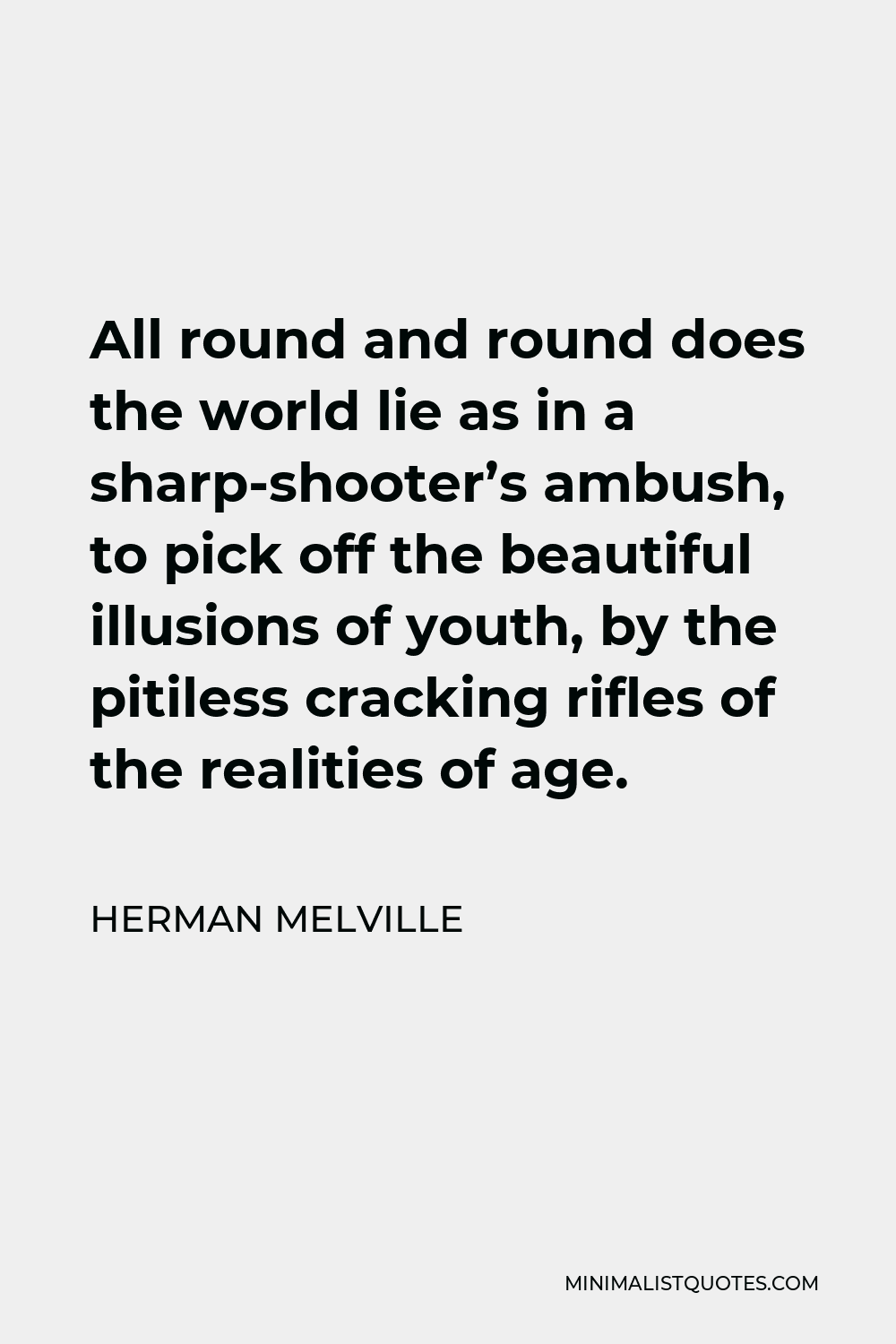The worst of our evils we blindly inflict upon ourselves; our officers cannot remove them, even if they would.
HERMAN MELVILLEAll round and round does the world lie as in a sharp-shooter’s ambush, to pick off the beautiful illusions of youth, by the pitiless cracking rifles of the realities of age.
More Herman Melville Quotes
-







-





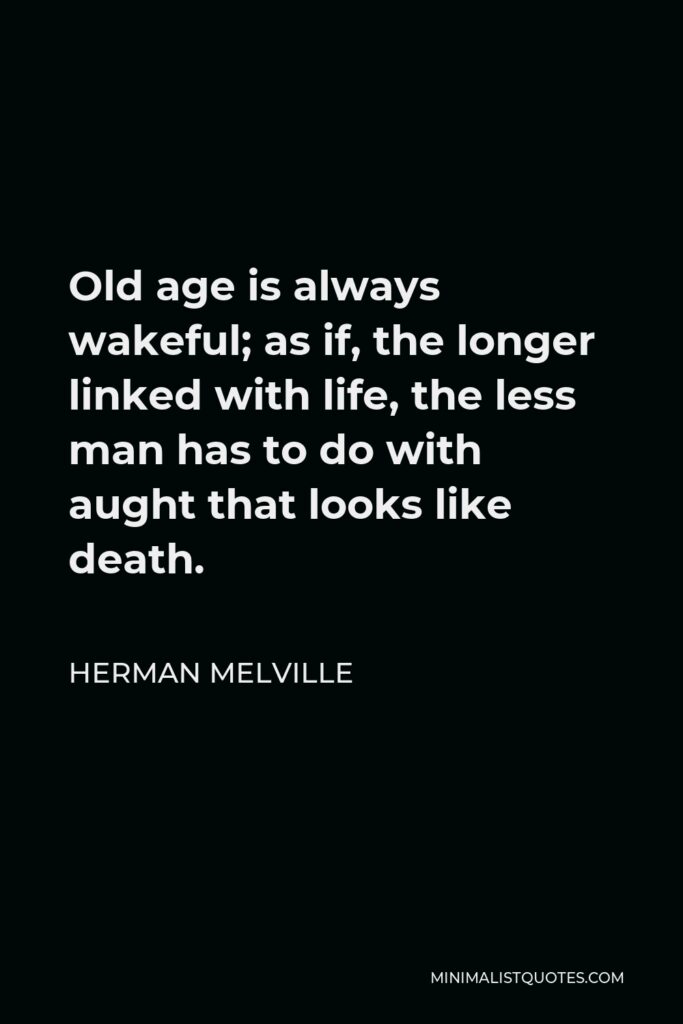

Old age is always wakeful; as if, the longer linked with life, the less man has to do with aught that looks like death.
HERMAN MELVILLE -







We cannot live only for ourselves. A thousand fibers connect us with our fellow men.
HERMAN MELVILLE -







Thinking is, or ought to be, a coolness and a calmness; and our poor hearts throb, and our poor brains beat too much for that.
HERMAN MELVILLE -







He who has never failed somewhere, that man can not be great.
HERMAN MELVILLE -







You know nothing till you know all; which is the reason we never know any thing.
HERMAN MELVILLE -







The poor man wants many things; the covetous man, all.
HERMAN MELVILLE -







Benevolent desires, after passing a certain point, can not undertake their own fulfillment without incurring the risk of evils beyond those sought to be remedied.
HERMAN MELVILLE -







The eyes are the gateway to the soul.
HERMAN MELVILLE -





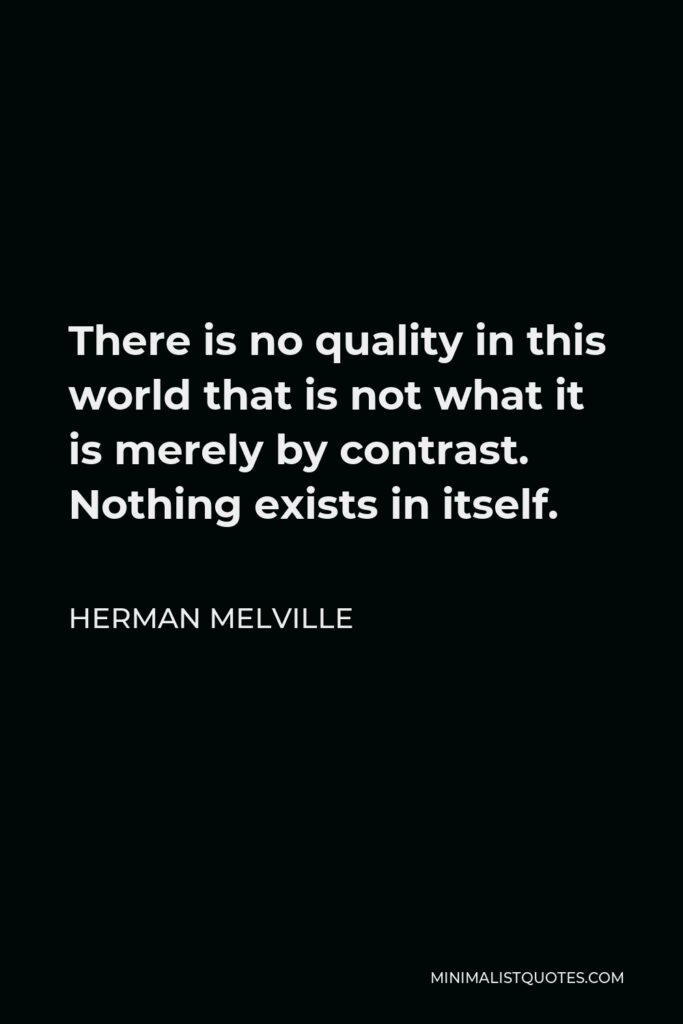

There is no quality in this world that is not what it is merely by contrast. Nothing exists in itself.
HERMAN MELVILLE -







Silence is the only Voice of our God.
HERMAN MELVILLE -







If you can get nothing better out of the world, get a good dinner out of it, at least.
HERMAN MELVILLE -







A book in a man’s brain is better off than a book bound in calf – at any rate it is safer from criticism.
HERMAN MELVILLE -





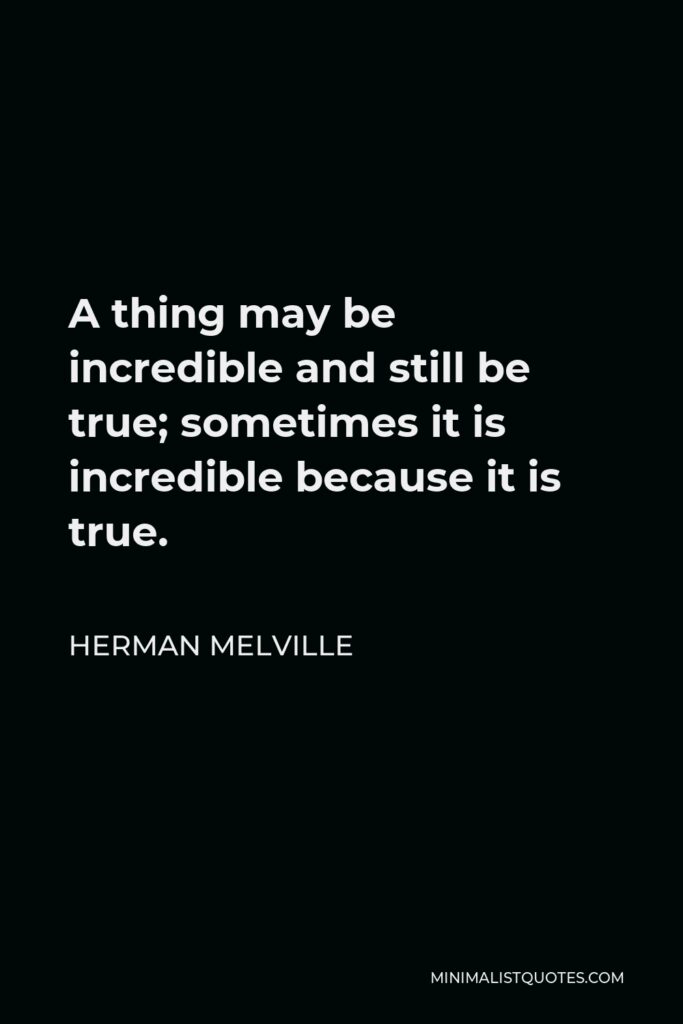

A thing may be incredible and still be true; sometimes it is incredible because it is true.
HERMAN MELVILLE -







No philosophers so thoroughly comprehend us as dogs and horses.
HERMAN MELVILLE -







To produce a mighty book, you must choose a mighty theme.
HERMAN MELVILLE


